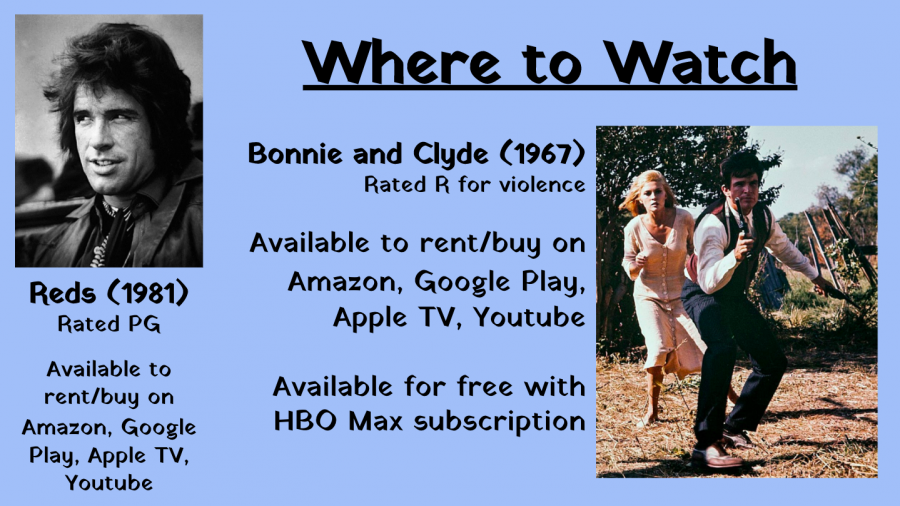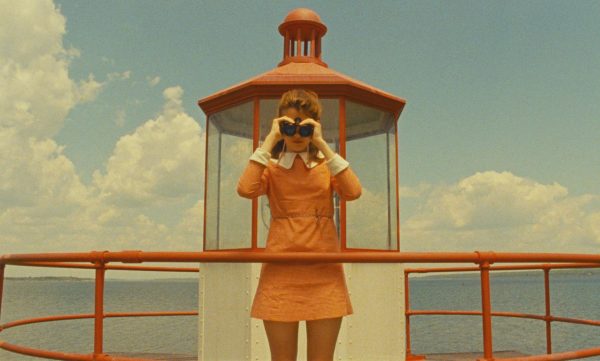Generals in film: Warren Beatty
Warren Beatty is one of the school’s most well known alumni, and it isn’t hard to see why. The fifteen-time Academy Award nominated actor, director, screenwriter and producer got his start at W-L, and is best known for “Bonnie and Clyde”, “Reds”, “Heaven Can Wait”, and infamously announcing the wrong winner of the 2016 Oscar for Best Picture.
Beatty discovered his passion for acting in high school, but he was also a star football player for the Generals. Graduating in 1955, he was reportedly offered ten college scholarships to play football, but chose to study at Northwestern University, where he only remained for one year before he moved to New York to study at the Stella Adler Studio of Acting.
Beatty’s first breakout hit, “Bonnie and Clyde”, is a film (based on a true story!) about two lovestruck criminals on the run from the police throughout the midwest. Beatty produced and starred in the 1967 film, which was both a box office success and met with critical acclaim.
This is the first film I watched for this series, and it was a great first choice. Beatty’s character, Clyde Barrow, is introduced to the audience while attempting to steal a woman’s car. The woman, Bonnie Parker (Faye Dunaway), is bored with her life of waitressing in her small Texas town, and Clyde’s confident persona intrigues her. After a now-iconic scene in which the characters each have a Coke during an up-close and personal shot sequence, the two begin their career as a crime duo. After a few successful stick-ups, they find a man working at a gas station willing to be their getaway driver, and Clyde’s brother and his wife join the team shortly after.
Beatty’s swagger is bold and unwavering up until this point, but he really shows his depth when we begin to see beyond the surface of Clyde’s bravado. He is nervous when alone with Bonnie, and it becomes more and more clear that his plan might not be as well thought out as it appeared. Without giving too much of the plot away, I was very impressed with Beatty’s performance of the happy-go-lucky outlaw without much of a path.
My other selection from Beatty’s filmography was “Reds”. “Reds”, released in 1981, was an incredibly ambitious effort by Beatty, who wrote, produced, directed and starred in this implausibly successful epic. The 195 minute film is based on the true story of Jack Reed, a journalist in 1910’s New York, who struggles between his personal life and his revolutionary ambitions.
As opposed to his performance as the freewheeling Clyde Barrow, Beatty instead plays a character with strong purpose, so much so that he struggles to find a way to help the radical Bolshevism movement both in New York and Russia. As Louise, a Portland writer so anxious to get out of her uncomfortable relationship with her husband that she flies to New York with Jack, Diane Keaton’s acting is so incredibly subtle that she barely needs to say her lines to know what she’s thinking. Beatty’s best moments come in his political and intimate moments of conflict, and while he isn’t nearly as exciting during the rest of the film, it’s worth sitting through some scenes that drag to watch his performance in chaotic scenes,
The film’s main flaw comes from the runtime; it’s just really long. Unlike other classic 3 plus hour epics (see “The Godfather” and “Lord of the Rings” trilogies), there simply isn’t enough story to result in a fully captivating watch. That said, when “Reds” has its moments, such as when Reed desperately tries to prevent the splitting of the fiercely conflicted New York Communist party, they are incredible. “Reds” would go on to be nominated for 12 Academy Awards, winning three, for Best Actress in a Supporting Role (Maureen Stapleton), Best Director (Beatty) and Best Cinematography (Vittorio Storaro, who also won the same award for “Apocalypse Now” and “The Last Emperor”).
Beatty’s career can’t be summed up in just two movies, but these two provide contrasting examples of his ability as an actor, as well as writer and director. “Bonnie and Clyde”’s exciting action lends itself to a more gripping experience, while “Reds”’ slower, more dramatic themes represent Beatty’s maturity and highlight his growth in the 14 years between the two films. While his career has spanned so long that it is impossible to summarize it in just a few movies, these two are a great place to start.













